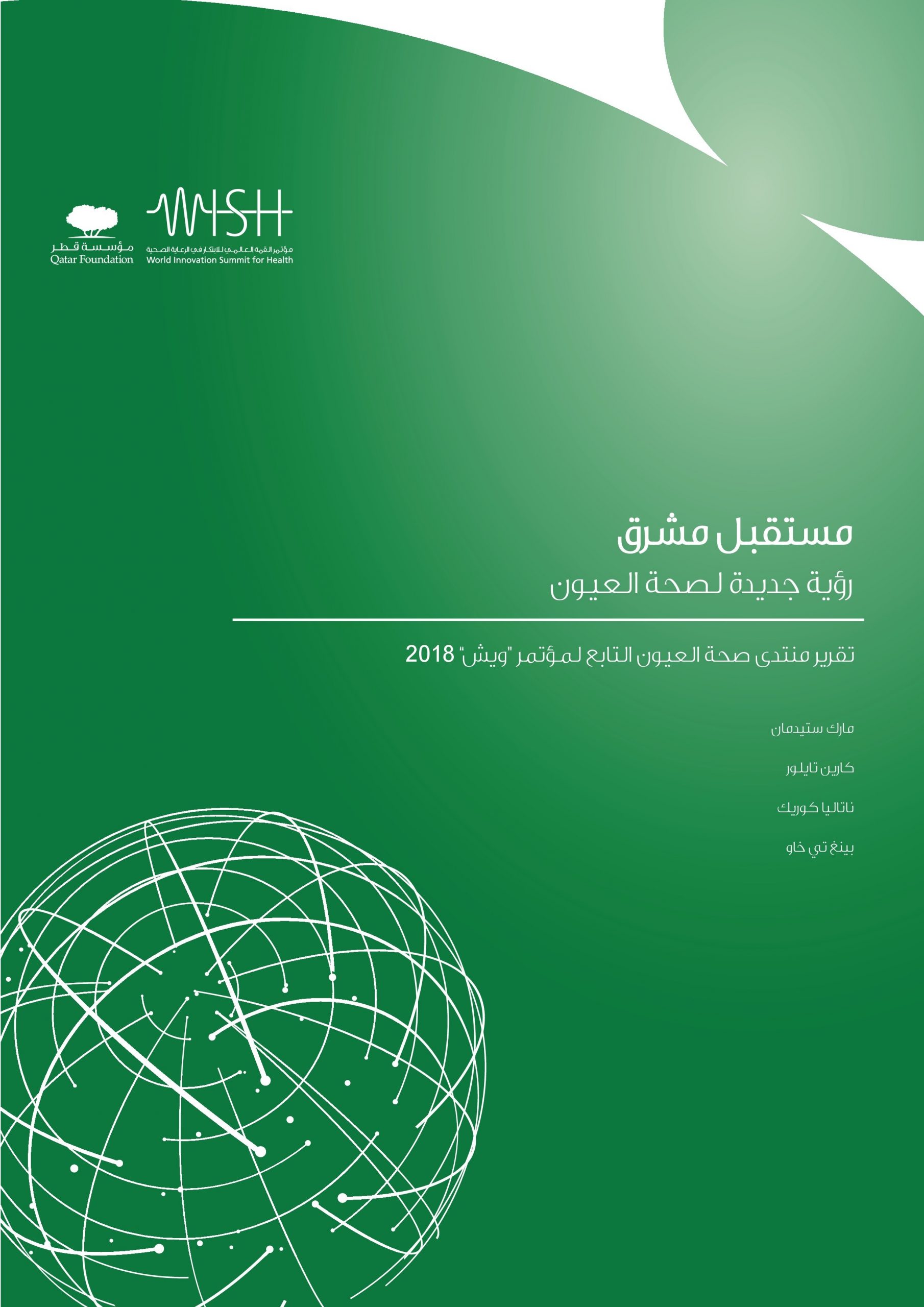ملخص تنفيذي
Sight is our dominant sensory input. In a global YouGov survey commissioned by the World Innovation Summit for Health (WISH) in 2018, 74 percent of respondents identified sight as the most precious of the five senses. Our vision dramatically affects our awareness and perception of the world around us. Lost or impaired vision has an enormous impact on quality of life and economic productivity, as well as potentially reducing life span due to lifestyle and related health factors.1,2 In 2015, 36 million people worldwide were blind, and 217 million people had moderate to severe visual impairment (MSVI). Yet the World Health Organization (WHO) estimates that more than 80 percent of global visual impairment is avoidable or curable.
Health systems around the world are facing increasing pressures due to the growth and aging of their populations and a shift in the global burden of disease to age-related and largely non-communicable diseases. While the overall prevalence of blindness and MSVI reduced between 1990 and 2015, the total number of people affected by loss or deterioration of vision is increasing. The number of people in the world who are blind is expected to reach 38.5 million in 2020 and 115 million in 2050. Similarly, the number of people suffering from MSVI is expected to reach 237.1 million in 2020 and 587.6 million in 2050.
The effects of visual impairment can be devastating for individuals and their communities, particularly those in low-income countries. However, an increasing body of research shows that eye health interventions can lead to large financial returns on investment. Prevention and treatment of avoidable visual impairment can also improve overall health, wellbeing and economic and social prosperity, and help people retain their independence and quality of life.

